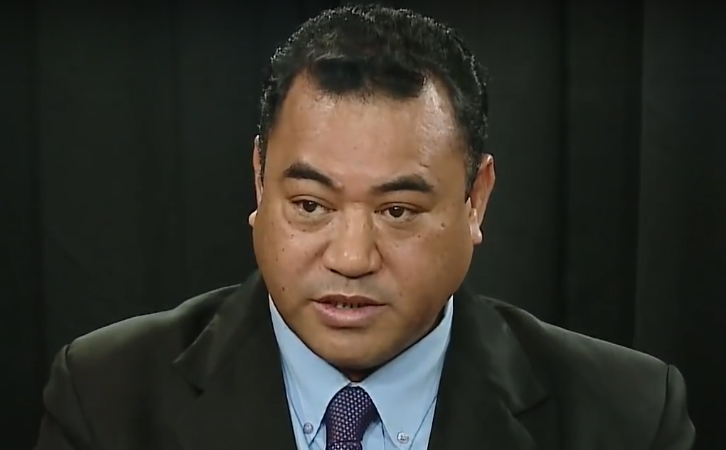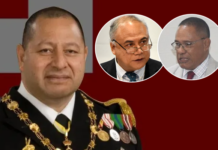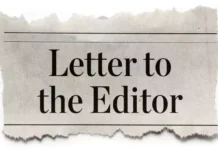UPDATED: The Supreme Court has granted leave to apply for a judicial review of a decision by Parliament to grant MPs pay rises.
Member for Tongatapu 4 Mateni Tapueluelu sought leave to apply for judicial review of two resolutions of the Legislative Assembly – 58-A/2018 and 60A/2018 – passed in 2018 and a decision in 2022 to implement those resolutions.

The application was heard by Lord Chief Justice Whitten.
The effect of the resolutions was to grant Members and staff of the Legislative Assembly a 14% pay rise backdated to 2018.
The court document said the timing of the approvals was unreasonable given that the kingdom was in a financial crisis following the volcanic eruption, tsunami and Covid-19 epidemic.
The first resolution was not the subject of a motion prior to its circulation for Members’ approval. Voting was done by placing a tick next to MP’s names and signing their names.
The effect of the resolutions was to propose pay rises for MPs amounting to $TP1,997,742 for 2018/19; $TP1,538,742 for 2019/20; $TP1,538,742 for 2020/21 and $TP1,968,662 for 2021/22.
The pay rises derived from consultancy work done by Dr ‘Aisake Eke and investigations by the Standing Committee on Privileges and the Standing Committee on Finance.
The court was told that none of the reports from the Standing Committees or Dr Eke were referred to Parliament for debate and vote in accordance with Rule 79 of the Rules of Procedure of the Legislative Assembly.
During a sitting of Parliament in June last year the then Minister of Finance, Tatafu Moeaki, referred to a provision of $TP6.7 million for salary increases for Members of the Legislative Assembly and staff.
Lord Chief Justice Whitten said the 2022/23 Appropriation Act was assented to on 30 June 2022. At the bottom of page 152 of the approved Budget, the sum of $TP6.7 million is stated in the “Note” without any explanation or detail as required by ss 7(5) of the Public Finance Management Act.
“Mr Tapueluelu believes that sum represents the amounts for the pay outs pursuant to the resolutions,” the judge said.

In July 2022, the Legislative Assembly resolved to implement the salary increases and backdate the payments to commence from 1 July 2018. That decision was not the subject of any motion presented to, or debate within, the Legislative Assembly. There was no record of any proper resolution to that effect as required by Clause 19 of the Constitution.
“The financial implications of the decision are said to have been immense, given the nation was in a critical situation and in a recovery phase from the impacts of the volcanic eruption and tsunami in January 2022 and the Covid-19 pandemic from the first week of February 2022,” the judge said.
The salary increases for the Members and staff were described in the Reports of the Standing Committees as being justified on the basis of increases in the costs of goods in Tonga. The effect of the decision was to grant Members of Parliament a pay rise of 14%. Meanwhile, the cost of living allowance for all other civil servants was only 3%.
In his application, Hon. Tapueluelu said Parliament’s powers were bound by the Constitution of Tonga, which was the supreme law.
The Rules of Procedure of the Legislative Assembly were mandated by clause 62(2) of the Constitution. The Legislative Assembly’s failure to comply with its Rules was a breach of the Constitution.
The Legislative Assembly did not have the privilege of supremacy over the Courts.
On the use of circulars, Lord Chief Justice Whitten said Part 5 of the Rules of Parliament prescribed the procedure for matters for discussion in the Legislative Assembly. Rule 79 required such matters to be presented by way of a notice of motion. Both the resolutions under consideration were communicated to the Members in the form of circulars delivered to their homes for them to tick and sign their names to express agreement.
The circulars were neither a motion nor a resolution, the judge said.
The manner in which the resolutions were communicated was in breach of Rules 79 and 80 which is, in turn, inconsistent with clause 62(2) of the Constitution.
Circulars were usually used for administrative purposes such as issues concerning travel, donations and other minor matters. In this instance, the practice was inconsistent with Rule 117 and therefore clause 62(2) of the Constitution because it denied Members their right to debate and vote before reaching a decision by means of a resolution as per clause 19 of the Constitution.
“The timing of the approval was so unreasonable that no reasonable authority could ever have decided it,” the judge said.
“Tonga was still recovering from the Hunga Tonga Hunga Ha’apai volcanic eruption and tsunami and the Covid-19 lockdowns. The nation was in crisis and subject to severe financial constraints.
“Yet, the Legislative Assembly made a decision, without any proper motion, debate or vote, to apply substantial amounts of money to pay out salary increases for Members and staff back dated 1 July 2018.”
Lord Chief Justice Whitten granted Hon. Tapueluelu leave to apply for judicial review of the lawfulness of the two resolutions in 2018 and the decision in July 2022 to implement those resolutions.







